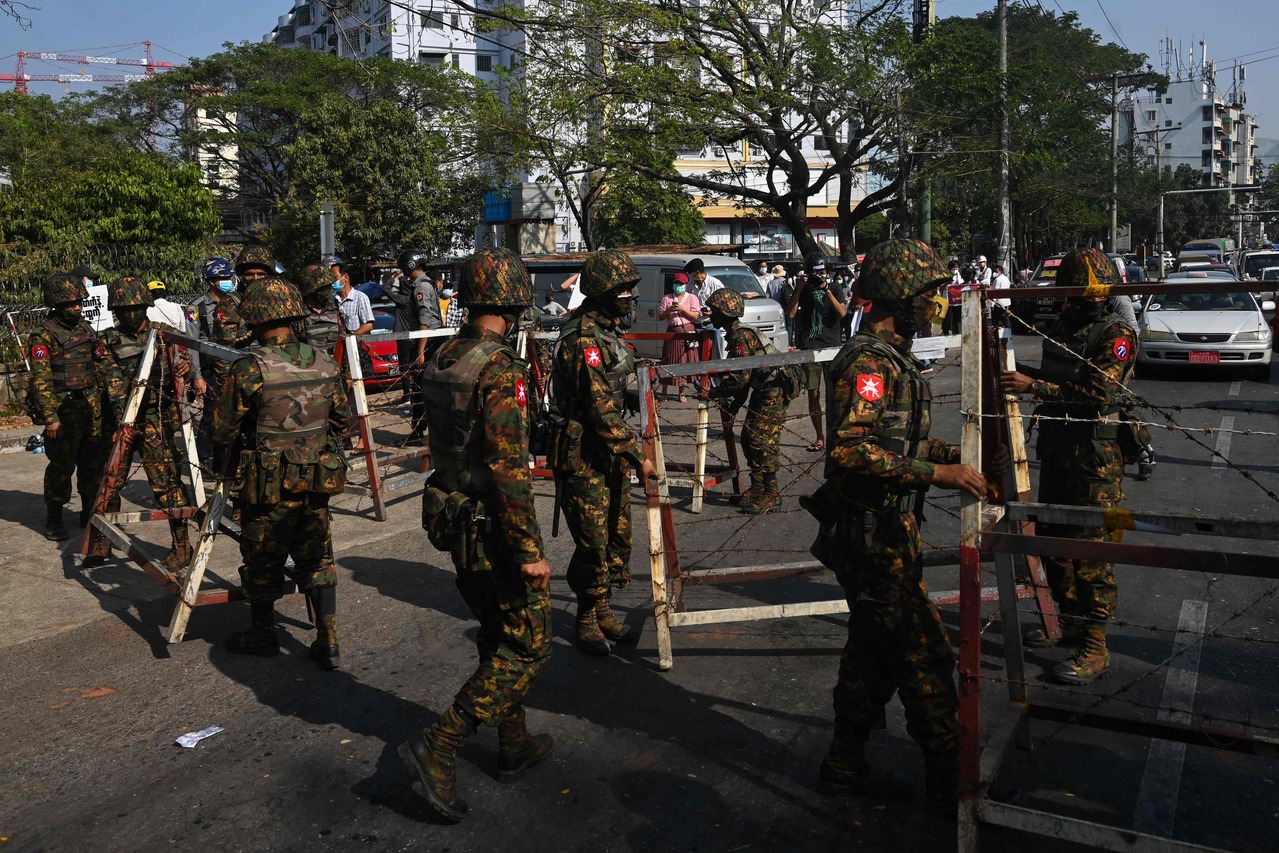Myanmar's UN envoy tells US lawmakers more sanctions needed
Sign up now: Get insights on Asia's fast-moving developments

Ambassador Kyaw Moe Tun warned that the crisis triggered by a Feb 1 coup threatened regional security.
PHOTO: AFP
WASHINGTON (REUTERS) - Myanmar's ambassador to the United Nations told the US Congress on Tuesday (May 4) that Washington should target the state-run Myanmar oil and gas company and a state-owned bank with sanctions.
Ambassador Kyaw Moe Tun, a representative of elected lawmakers who oppose Myanmar's military junta, also warned that the crisis triggered by a Feb 1 coup in the Southeast Asian nation threatened regional security.
The Biden administration has denounced the coup and imposed sanctions on the generals who led it as well as some of their family members and businesses that provide them with revenue.
The Myanmar ambassador told the House Committee on Foreign Affairs that as well as the military-run Myawaddy and Innwa banks, the United States should slap sanctions on the state-owned Myanmar Foreign Trade Bank (MFTB) and Myanmar Oil and Gas Enterprise (MOGE).
MOGE operates offshore gas fields in joint ventures with international firms, including US-based Chevron and France's Total, while MFTB conducts transactions in foreign currencies for Myanmar's government.
The Assistance Association for Political Prisoners (AAPP) advocacy group says security forces have killed at least 766 civilians since the coup, which sparked nationwide protests.
Some pro-democracy activists have travelled to Myanmar's mountainous borderlands to join armed groups fighting for ethnic autonomy, raising fears of a spiralling conflict.
"I wish to stress that Myanmar is not just witnessing another major setback to democracy, but also the crisis is threatening the regional peace and security," said Kyaw Moe Tun, who dramatically broke with the military junta in February, but has retained the country's seat at the United Nations.
Meanwhile, France's Le Monde newspaper reported on Tuesday that an offshore scheme in Bermuda used by French energy group Total and its partners in a Myanmar gas project maximised revenues for a company closely tied to the country's military leaders, at the expense of taxpayers in Myanmar.
Le Monde cited internal documents it has had access to.
Myanmar Oil and Gas Enterprise, or MOGE, an agency within the energy ministry and is one of the shareholders in the pipeline firm domiciled in Bermuda.
MOGE does not publish its accounts or website and for years, along with other state-owned enterprises, has held revenues in opaque "other accounts" whose management and beneficiaries are not known.
Human rights groups and United Nations investigators say it has deep ties to the military's business empire.
Total, which published the answers it had sent to Le Monde newspaper, confirmed the existence of the Bermuda holding company, set up in 1994, and which is listed as such in its accounts.
It said it no longer uses set-ups in countries considered to be tax havens but was unable to shift the headquarters of the pipeline company as it did not control it alone.
Total also denied that profits at the pipeline company, known as Moattama Gas Transportation Company (MGTC) and in which it is a shareholder along with MOGE, were not unusually high, as alleged by Le Monde.
According to Le Monde, the offshore scheme involved MGTC, which is domiciled in Bermuda and which operates the pipeline bringing gas from Myanmar's Yadana field to Thailand. Its shareholders are Total, alongside Thailand's PTTEP, MOGE and Chevron of the United States.
MGTC shareholders benefited as dividends parked in Bermuda were not subject to Myanmar taxes, depriving state coffers of some of those revenues, Le Monde said.
Total, by virtue of its partnership with MOGE, already faced accusations of doing business with military rulers. The use of the offshore entity though has the potential to make any transactions less transparent, and subject to less tax.
Asked about Le Monde's article, Chevron said the company and its affiliates complied with all applicable laws and contractual requirements.
Total said in early April it had so far not paid any of the US$4 million (S$5.34 million) in monthly taxes it usually pays to the Myanmar government since the coup "for the simple reason that the banking system no longer functions."


